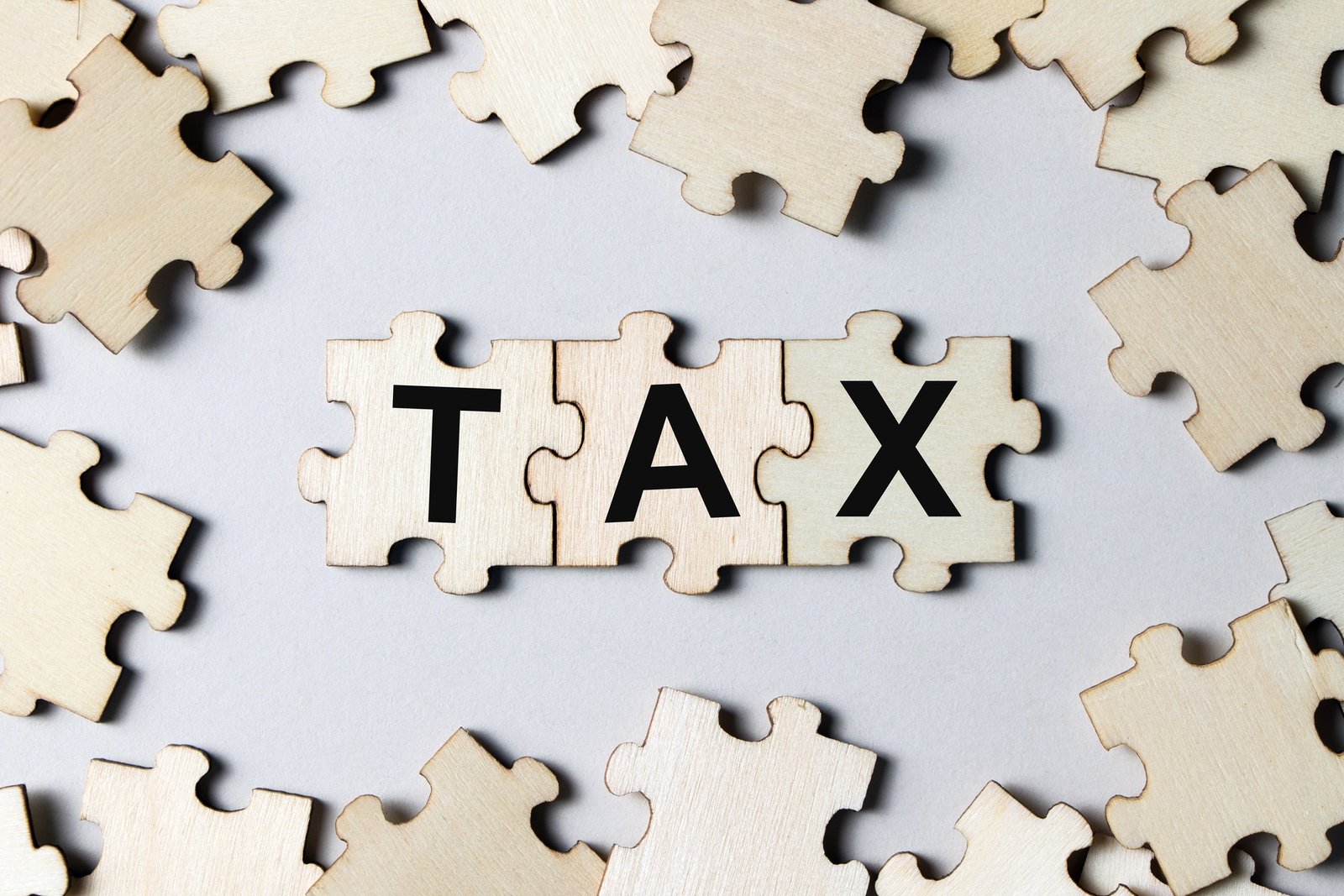Why Every Small Business Needs a CPA: Tax Strategy, Compliance & Growth
Introduction
Running a small business in Canada isn’t just about offering great products or services — it’s also about navigating complex financial responsibilities. From meeting tax deadlines to understanding cross-border transactions, small business owners often find themselves overwhelmed by paperwork, regulations, and the ever-changing rules of the tax system.
That’s where having a CPA for small business can make all the difference.
A Chartered Professional Accountant (CPA) does far more than prepare tax returns. They bring strategy, clarity, and peace of mind to your business finances — helping you make informed decisions today that build stronger outcomes tomorrow. Whether you’re just starting out or already growing, the right CPA ensures that every number in your books supports your success.
In today’s globalized market, many small businesses are also dealing with international clients, vendors, or digital operations — which can introduce unexpected tax challenges. From cross-border e-commerce to service-based exports, these situations require guidance from a cross border tax accountant who understands both Canadian and foreign tax systems. Without expert help, it’s easy to miss compliance requirements or lose out on potential tax advantages.
Another area small businesses often overlook is tax relief. There are several forms of tax exemption for small businesses available in Canada, including deductions and credits designed to ease the burden and improve profitability. However, many of these benefits go unclaimed simply because business owners don’t know they exist — or how to qualify.
This blog is your guide to understanding why working with a professional accountant isn’t just an option — it’s a long-term investment in the financial health of your business. We’ll explore how a CPA for small business helps with tax compliance, planning, cross-border filing, and more — so you can focus on growing your business with confidence.
Role of a CPA for Small Business
As a small business owner, it’s tempting to handle everything on your own — from marketing and operations to bookkeeping and taxes. But when it comes to finances, one small mistake can have costly consequences. That’s why having a CPA for small business is not just helpful — it’s essential.
A Chartered Professional Accountant is more than just a number cruncher. They are trained to analyze your entire financial picture and provide tailored advice that fits your specific business needs. Whether you’re a solo entrepreneur or managing a small team, a CPA becomes your financial partner — guiding you through every stage of your business journey.
Here’s what a CPA can do for your small business:
- Financial Reporting & Record-Keeping:
Ensure your books are accurate, updated, and audit-ready. A CPA helps maintain organized financial records, so you’re never caught off guard. - Tax Planning & Filing:
Tax season doesn’t have to be stressful. A CPA ensures all forms are filed correctly and on time — while helping you claim every eligible credit, deduction, or tax exemption for small businesses that applies. - Strategic Business Advice:
Want to grow or expand your operations? Your CPA helps analyze your cash flow, forecast expenses, and evaluate financial risks before you make big decisions. - Compliance & CRA Regulations:
Canada’s tax laws are constantly changing. A CPA for small business keeps up with all CRA updates so you remain compliant year-round.
Unlike a general accountant or bookkeeper, a CPA is licensed, certified, and held to rigorous ethical and educational standards. This gives you peace of mind, knowing that your financial affairs are in trustworthy hands.
As your business evolves, your CPA evolves with you — helping with more complex issues like payroll, GST/HST filing, audits, and even cross border tax accountant services if you begin working internationally.
In short, hiring a CPA is not just about meeting today’s requirements — it’s about building a stable, scalable future. With the right financial guidance, you can focus less on paperwork and more on what truly matters: running your business.
Tax Compliance Made Easy
For most small business owners, tax compliance is the most confusing and time-consuming part of running a business. From understanding what documents are needed to keeping up with Canada Revenue Agency (CRA) regulations, it can feel like a maze — especially if you’re doing it alone. This is where having a CPA for small business becomes invaluable.
A CPA simplifies the entire compliance process. They know exactly what the CRA expects, what red flags to avoid, and how to ensure your filings are accurate and on time. No guesswork, no last-minute rush — just clarity, control, and confidence.
What does tax compliance involve?
- Accurate Bookkeeping
Staying compliant starts with keeping your books in order. A CPA helps you track income, expenses, payroll, and inventory with precision. - Filing Taxes on Time
Whether it’s corporate income tax, GST/HST, or payroll deductions, missing deadlines can lead to penalties. Your CPA makes sure nothing slips through the cracks. - Claiming Tax Benefits
Many small business owners miss out on available tax exemptions for small businesses, such as the Small Business Deduction or input tax credits. A CPA ensures you claim what you’re eligible for — reducing your overall tax burden. - Audit Support
If your business is ever selected for a CRA audit, your CPA is your first line of defense. With well-maintained records and professional representation, audits become far less intimidating. - Staying Updated with CRA Changes
Tax rules change frequently. A CPA for small business keeps up with new regulations, so your compliance strategy always aligns with current laws.
By making tax compliance easier, a CPA gives you more than just peace of mind — they give you time back. Time to focus on your business, your customers, and your growth. You won’t need to worry about whether you filed correctly or missed a deduction. Your CPA handles the details so you can stay compliant, stress-free, and ready for whatever comes next.
Tax Exemption for Small Businesses: What You Need to Know
One of the most powerful ways to reduce your business expenses is by taking full advantage of the tax exemption for small businesses available under Canadian tax law. Unfortunately, many small business owners either aren’t aware of these exemptions or aren’t sure how to qualify for them — leaving valuable savings on the table.
A qualified CPA for small business helps you understand which tax benefits you’re eligible for, and how to strategically structure your business to get the most out of them.
Common Tax Exemptions and Benefits for Canadian Small Businesses
- Small Business Deduction (SBD):
One of the most significant benefits, the SBD allows incorporated Canadian-controlled private corporations (CCPCs) to pay a lower tax rate on the first $500,000 of active business income. This can significantly reduce your overall tax bill if you’re structured properly. - Startup Costs Deductions:
You can deduct certain costs involved in starting your business — such as marketing, legal fees, and office equipment — from your taxable income. - Home Office Deductions:
If you operate your business from home, you may qualify to deduct a portion of your rent, utilities, and other household expenses. - Capital Cost Allowance (CCA):
This allows you to write off depreciation on business assets like computers, machinery, and furniture over time. - Input Tax Credits (ITCs):
If you’re registered for GST/HST, you may recover the tax paid on business-related purchases — a benefit often overlooked without a professional’s help.
Each exemption has its own criteria and documentation requirements. That’s why having a CPA for small business on your team is key — they not only help you apply these deductions correctly but also make sure you’re audit-proof in the process.
Beyond filing, a CPA can also recommend how to restructure your operations, expenses, or ownership to maximize the exemptions available to you in future years. Whether you’re a sole proprietor or a growing corporation, identifying these opportunities can lead to thousands of dollars in annual savings.
With the right guidance, tax exemption for small businesses becomes more than just a line on a form — it becomes a strategy to reinvest more back into your business.
5. Why You Need a Cross Border Tax Accountant
If your business operates across international borders — whether it’s selling products to U.S. customers, hiring foreign contractors, or setting up operations outside Canada — your tax situation instantly becomes more complex. That’s where the expertise of a cross border tax accountant becomes not just helpful, but critical.
Cross-border transactions trigger tax obligations in more than one country. Without the right strategy, you could face double taxation, penalties for non-compliance, or missed deductions that cost your business thousands.
A cross border tax accountant understands the nuances of international tax law, and helps you manage your responsibilities on both sides of the border — so your business remains profitable and protected.
Here’s how a cross border tax expert can help:
- Avoid Double Taxation
Many countries, including Canada and the U.S., have tax treaties that can reduce or eliminate the need to pay tax on the same income twice. A cross border tax accountant knows how to apply these treaties to your advantage. - File the Right Forms
Whether it’s the IRS W-8BEN-E, Canadian T1135, or U.S. tax return requirements for Canadian residents, the paperwork is detailed and unforgiving. Your accountant ensures all filings are accurate and timely. - Structure for Tax Efficiency
Should you operate as a sole proprietor, corporation, or partnership? The right structure can minimize your tax liability while complying with both Canadian and U.S. regulations. - Manage Foreign Income Reporting
If you earn income outside Canada, you may be required to disclose it under CRA rules. A cross border accountant ensures you’re transparent without overpaying. - Stay Ahead of Regulatory Changes
Tax laws in both Canada and the U.S. change frequently. Your cross border CPA keeps you updated and compliant year-round.
As your small business grows globally, your tax strategy must grow with it. Working with a cross border tax accountant helps you stay ahead of the game — protecting your profits, ensuring compliance, and giving you the clarity to expand with confidence.
6. Why RC CPA is Your Trusted Partner
At RC CPA Professional Corporation, we’re more than just tax professionals — we’re partners in your business success. Whether you’re a new entrepreneur or a growing enterprise, we understand the unique needs of small businesses and offer tailored solutions that go beyond basic accounting.
As a CPA for small business, our firm specializes in simplifying tax compliance, unlocking every available tax exemption for small businesses, and navigating international tax landscapes through our expert cross border tax accountant services. We don’t just prepare your taxes — we build a proactive strategy that supports your growth, protects your profits, and reduces your stress.
Here’s what sets us apart:
- Over 30 years of proven tax and accounting expertise
- Personalized service with quick, clear communication
- A deep understanding of CRA regulations and U.S.-Canada tax treaties
- Cloud-based systems for convenience and transparency
- Committed support year-round — not just during tax season
We take the time to learn your business inside and out, ensuring every dollar works harder for you.
Conclusion: Let’s Grow Your Business the Smart Way
Whether you need help staying compliant, maximizing deductions, or navigating international tax rules, RC CPA is here to guide you with clarity and care. With our support, you can focus on what matters most — running and growing your business.









